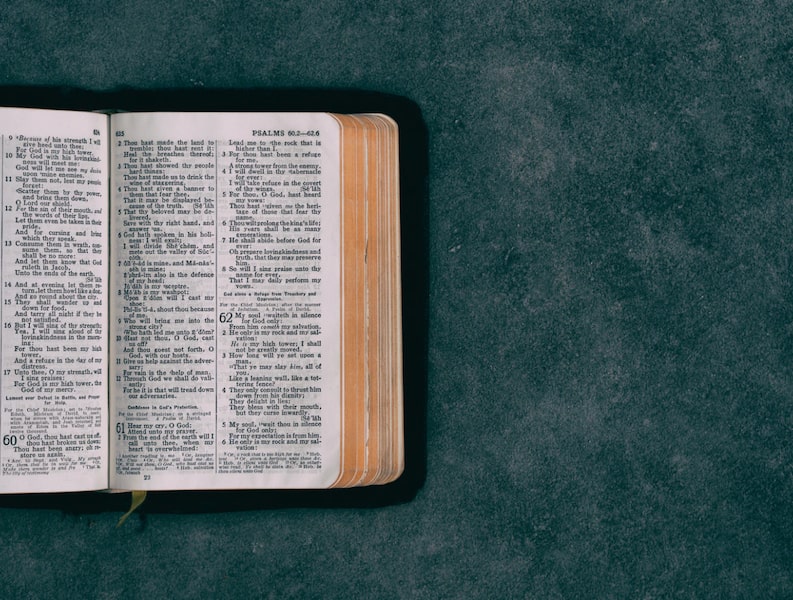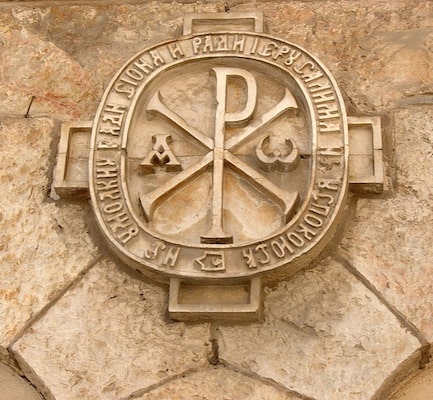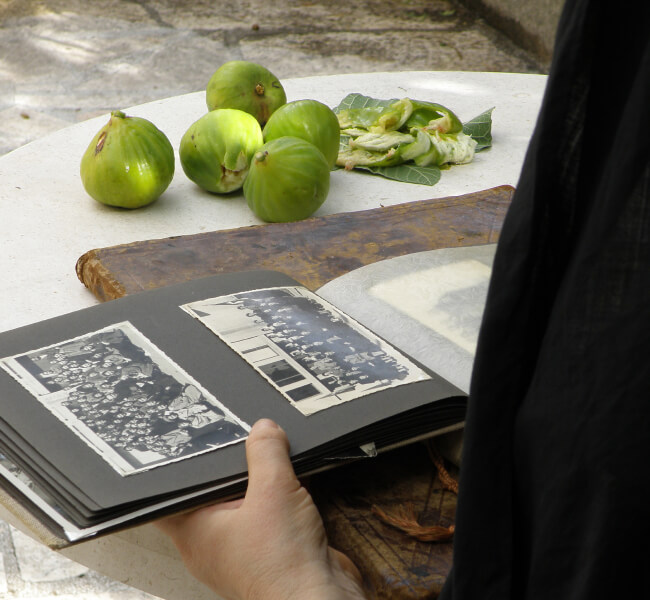
About us
Our life in community
The value and beauty of the Benedictine form of Christian life which is active, productive, and at the same time humble and joyful.

Walls of testimony
Their millennial presence in these areas left a deep and indelible mark on society as a whole and was the creator and bearer of many of its development elements.
/01

Back in 852, Prince Trpimir founded the first Benedictine monastery in Rižinice near Solin. In the following centuries, Benedictine communities multiplied, leading in number and reputation along the Adriatic coast. Founded on the solid rock of faith in Jesus Christ, the Benedictine monasteries on the coast became a fundamental source of spiritual creativity, which was especially evident in the development of the Latin alphabet.
There is hardly any area in which the Benedictines did not stand out and make a significant contribution. Valuing theory and practice, they are responsible for shaping the religious, social and cultural life of Europe.
/02

/03

/04

Sisters of St. Benedict
The reality of contemplative life is not monotonous and rigid. She is filled with meaning, with endless horizons for herself and others; initiated and supported by God's love, and shaped by our own cooperation.
Benedictine slogans
Like the air he breathes, prayer is the core of a consecrated life for a monk. An inexpressible fullness that fills the heart, because without prayer all spiritual life is extinguished and disappears.
/05

/06

Liturgical prayer, Divine reading and work are the three components of a nun's life. In her life, she strives to be God's interlocutor through prayer, and through work, she strives to be God's co-worker. Koludrica does nothing by herself, but always together with God. With my own hands, and with the power of God.
More about our life
The driver and underpinning of monastic life is the desire for oneness with God.
What our day looks like
It begins and ends with prayer, a means of sanctifying oneself and others. The core is the prayer of the hours, and the climax is the Eucharistic celebration.
Waking up
In the morning, the mystery of birth is renewed. It is the beginning of a new day when our being turns to the One from whom everything originated.
05:00
Reading service
It responds to the human need for a good, noble, benevolent, strong, comforting and saving word.
05:30
Consideration
Everything earthly is a barrier, but also a passage to God. The essence of the earthly is mediation. Consideration helps us see this.
-
Morning prayer
It begins by giving thanks and asking for the blessing of the day ahead. In the center is Christ and his resurrection, to whom he directs his gaze and will.
-
Holy Mass
It is the focal point of Christ's presence in which our whole life with its spiritual and physical elements is reflected and surrendered to.
-
Third hour
It gives another incentive to make friends with God's word. At the same time, it calls for its embodiment in everyday life.
-
Breakfast
A short meal in silence and preparation for work activities.
-
Work
Someone works for the sake of humanity, and someone for the sake of glory. The monk is called to belong to the first group, that is, to seek God's glory in his work.
08:00
Sixth hour
At noon, the bell calls for prayer and a break from work. Koludrica devotedly turns to her Lord, the cause, initiator and goal of monastic life.
12:00
Lunch
The love and work of others is embedded in the preparation and serving of food. Awareness of this breeds gratitude. Therefore, it is taken that way.
12:30
Recreation
Man knows himself only through other people. It is a time of meeting other members of the community, mutual sharing of challenges, experiences and possibilities of life.
13:00
Silent hour
In silence we encounter ourselves and our spiritual reality. In it, thoughts become clear, emotions calm down, and we become more aware and alert.
14:00
Ninth hour
It reminds us that we are travelers on earth and that it is not our permanent destination. It provides encouragement and refreshment on the spiritual path.
15:00
Work
Each one is worthy of attention, eager for effort and fruitful with beneficial effects, if it is done with the right intention. That's how it turns into a prayer.
15:30
Evening prayer
We thank God for the past day and ask forgiveness for all omissions. We are referring to all people, both the Christian community and civil society.
-
Dinner
The culture of communal dining has been present in our communities since the beginning. Eating in the same place strengthens the community and its unity.
-
Recreation
When the strength weakens and the activities subside, the community gathers and mutually shares the joys and sorrows, routine and surprises of the past day.
20:00
After dinner
It calls for deep honesty towards oneself and God, and ends in silent surrender to the Other, both distant and close.
21:00
It's nice to be a Benedictine
The relationship between God, man and the world through the paths of a rich monastic life, its breadth, depth and possibilities that it offers to everyone who believes in God's word.
/07

/08

/09

/10

The traditional hospitality of the Benedictines is their service, with open hearts serving others. Today, the communities are open for meetings of those who want to deepen their experience in seeking God and praying.
/11

/12

/13

/14

Spiritual mothers who show their openness to everyone, where the monastery is not their private home but God's house that belongs to everyone, which is open and where they can always seek comfort, a word of encouragement and advice. A contemplative life brings an invisible, spiritual benefit to the whole society. With their silent prayers in a consecrated life before God, they deceive for all people.
/15







